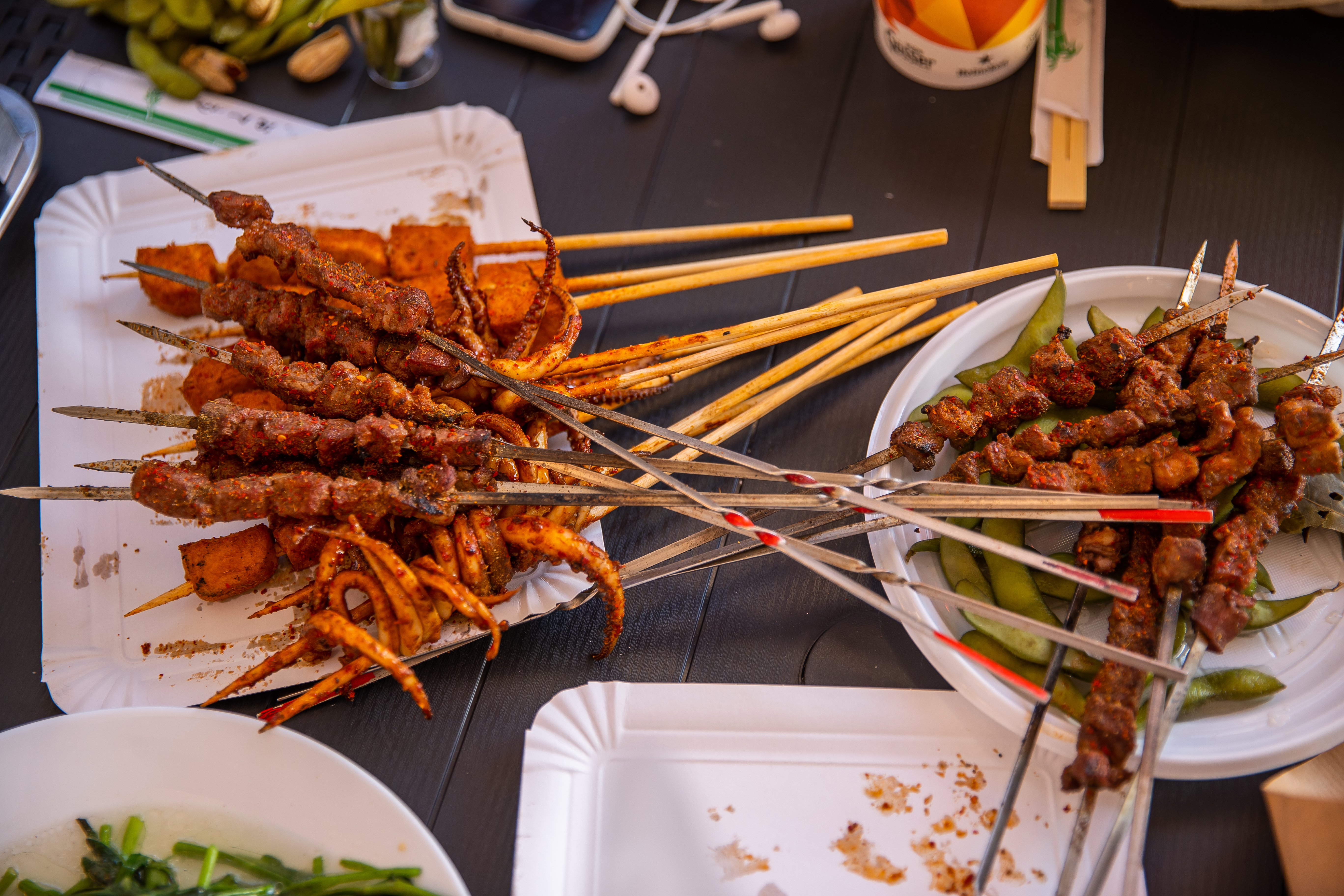Why a food market?
Alighting from tram 3 or finding a lucky parking spot in front of one of
the clothing wholesalers, as you approach the fountain outside the Wan Hao
restaurant, it feels like you might be somewhere in China. If you’ve spent the
day at work in Budapest, the contrast can be quite striking.
This has been the
case for the last ten years, to the point where an idea sparked in the minds of
local restaurateurs and food-bar owners that it would be good to create some kind
of casual meeting and dining space for Monori Center staff.
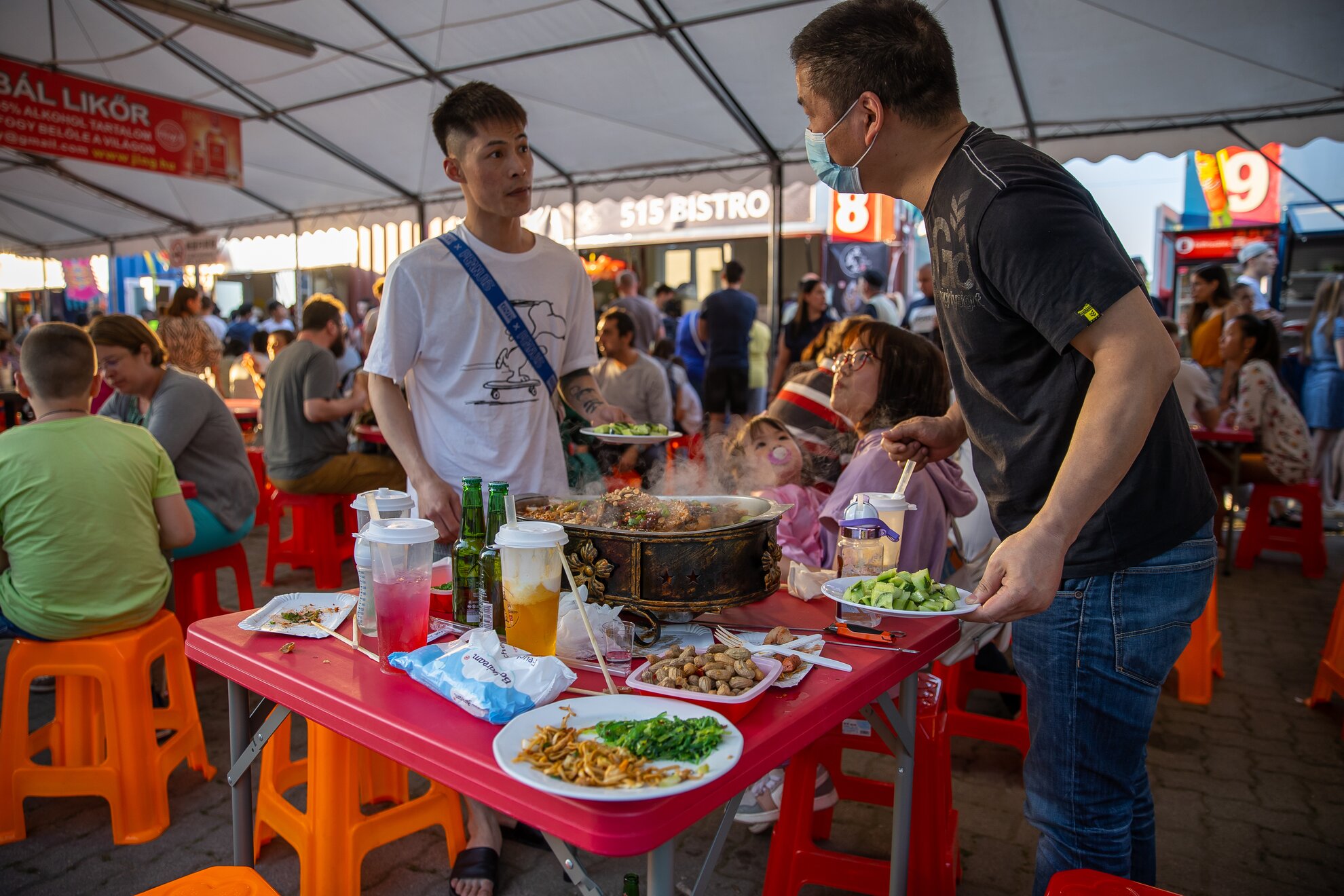
Initially, the goal was to set up a casual or quality-dining destination after the shops closed, with snacks, beer, lively tables, fun, great street food, the revered communal hot pot, and all in the open air, in the warmth of summer. And if a few Hungarian guests wandered in, great, show them a little of the atmosphere and flavours of Chinese food markets.
Changing times, changing guests
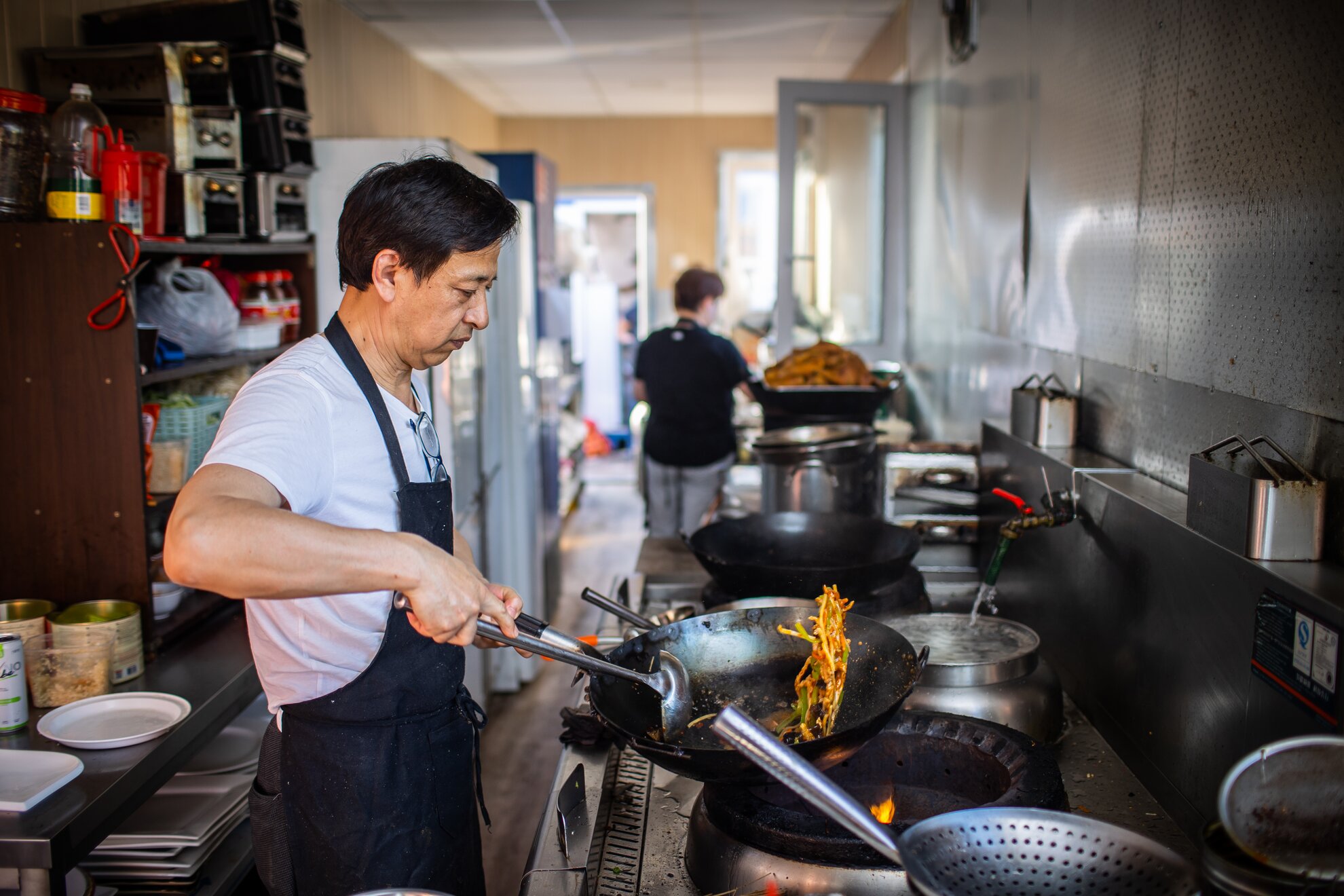
Today, the whole situation has become more nuanced and transformed, partly through word of mouth and partly due to high-profile social media. By now, far more Hungarian guests and local expats are more open to different kinds of gastronomy, love to travel and seek out real Chinese flavours and culture. In fact, after the pandemic, people are keener than ever to explore.
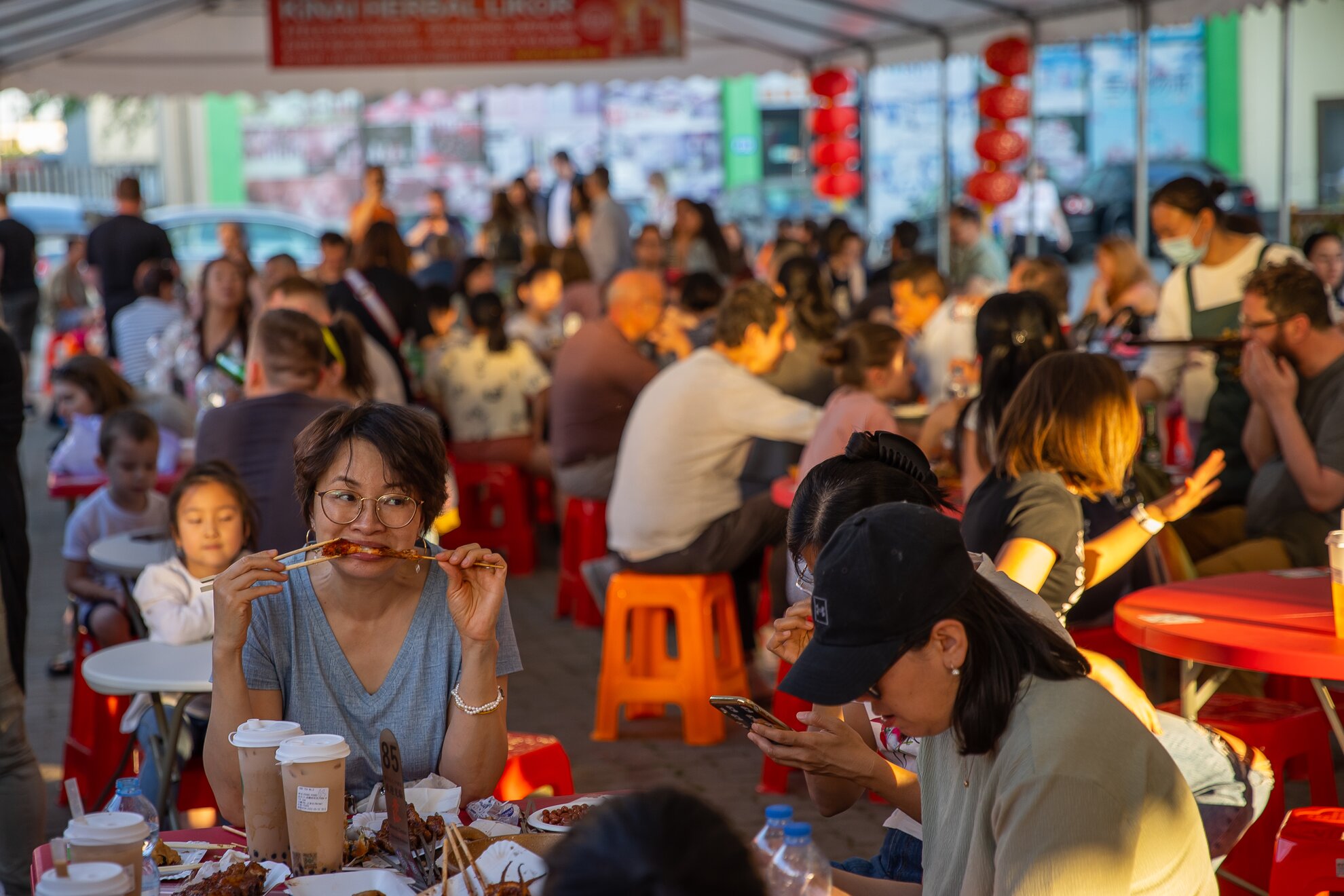
We first visited the market in the summer of 2020 and 2021, we noticed the changing proportion of guests. The
Chinese hosts do not mind this at all, in fact, they are proud that Hungarians are
curious about originality, and appreciate their flavours.
Recent developments
also make this a lot easier. Signs now provide images of each dish, the names
and descriptions given in Chinese and Hungarian, with some in English. It’s a great
help for locals, no more clumsy stuttering or frantic Google searches on phones.
Everything is much clearer.

User-friendly comfort
The overall design has also changed, more uniform and attractive. We love
the new chairs provided for the street-food stalls, comfortable even if you’re
sat there for a while. Credit-card payment is available everywhere. Some
restaurants use a paging system: when your delicacy is ready, a hand device gives
out a signal and you can pick up your goodies. Many places still offer table
service, especially if it’s not too crowded.
You also get a better view of the
kitchens, from preparation to final touches. It’s fascinating to watch, the
expert handling of the wok, the ingredients thrown in with gusto but also virtuoso
care.
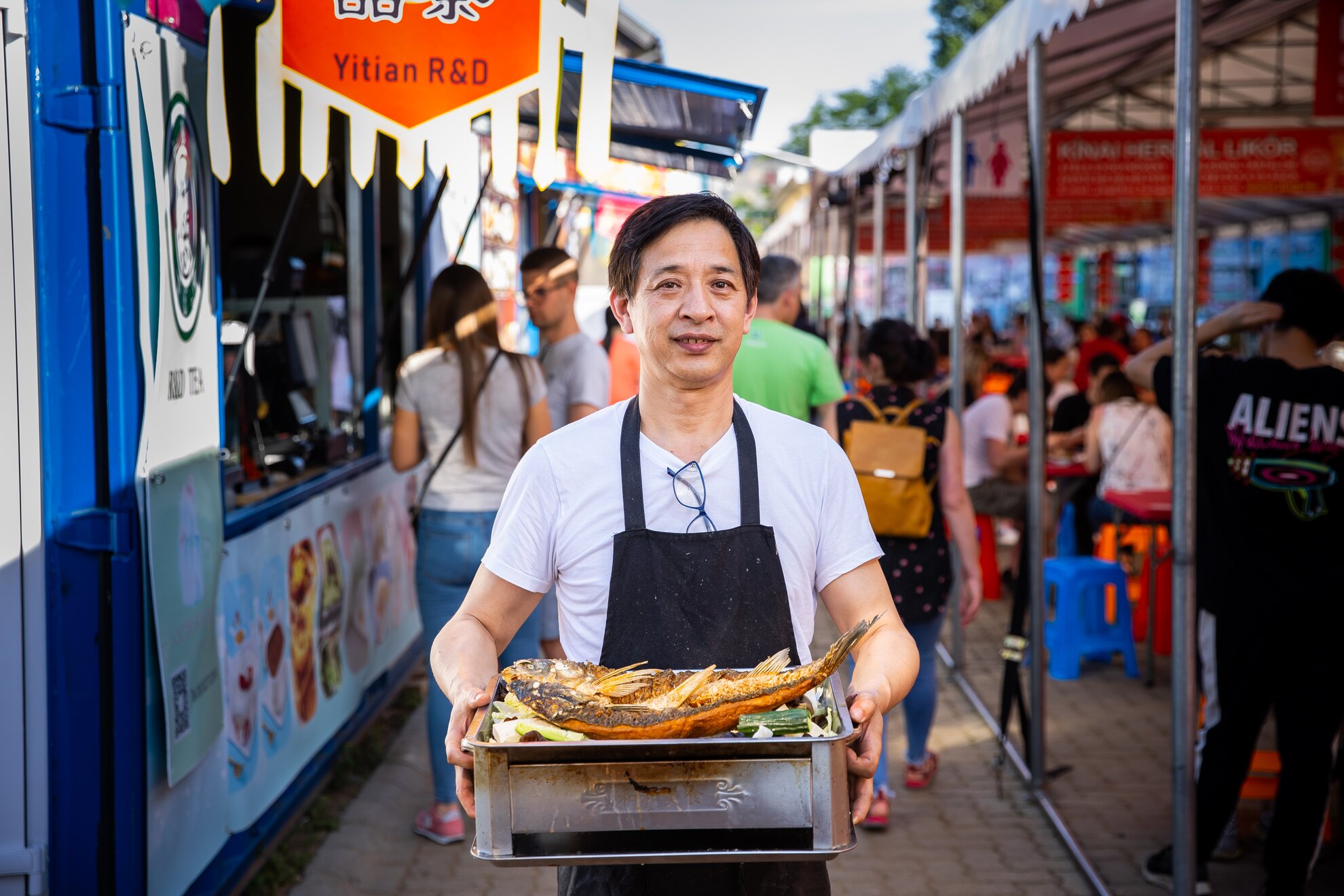
Opening weekend in pictures
Crowds flocked to the ceremonial opening day of Chinatown Terrace, chairs and tables full, dishes devoured. Everybody was delighted by the dragons, the dancers, the musicians and new dishes, it was a real celebration, with even Chinese rap. Take a look at the photos!
10 top tips for Chinatown Terrace
And now we come to the best bit, the exciting dishes now on offer at Chinatown Terrace for the 2022 season. Left in the capable hands of Henry and
Ann, we were guided round to sample as much as possible, without one big single blow-out.
Actually, this is the best way to experience the market, coming with a large group
of friends or trying out the exciting dishes on several different visits. Be aware
that apart from certain standalone dishes, Chinese burgers and Chinese savoury
pancakes for example, it’s not really a small-plate culture. Larger portions await, but
even then you can pick and choose among friends around the table. Ordering a
single dish for yourself alone doesn’t really work here. The aromas, the plates
being brought to your table and the steaming dishes all add to the experience.
So, let’s take a gastrotrip around Chinatown Terrace!
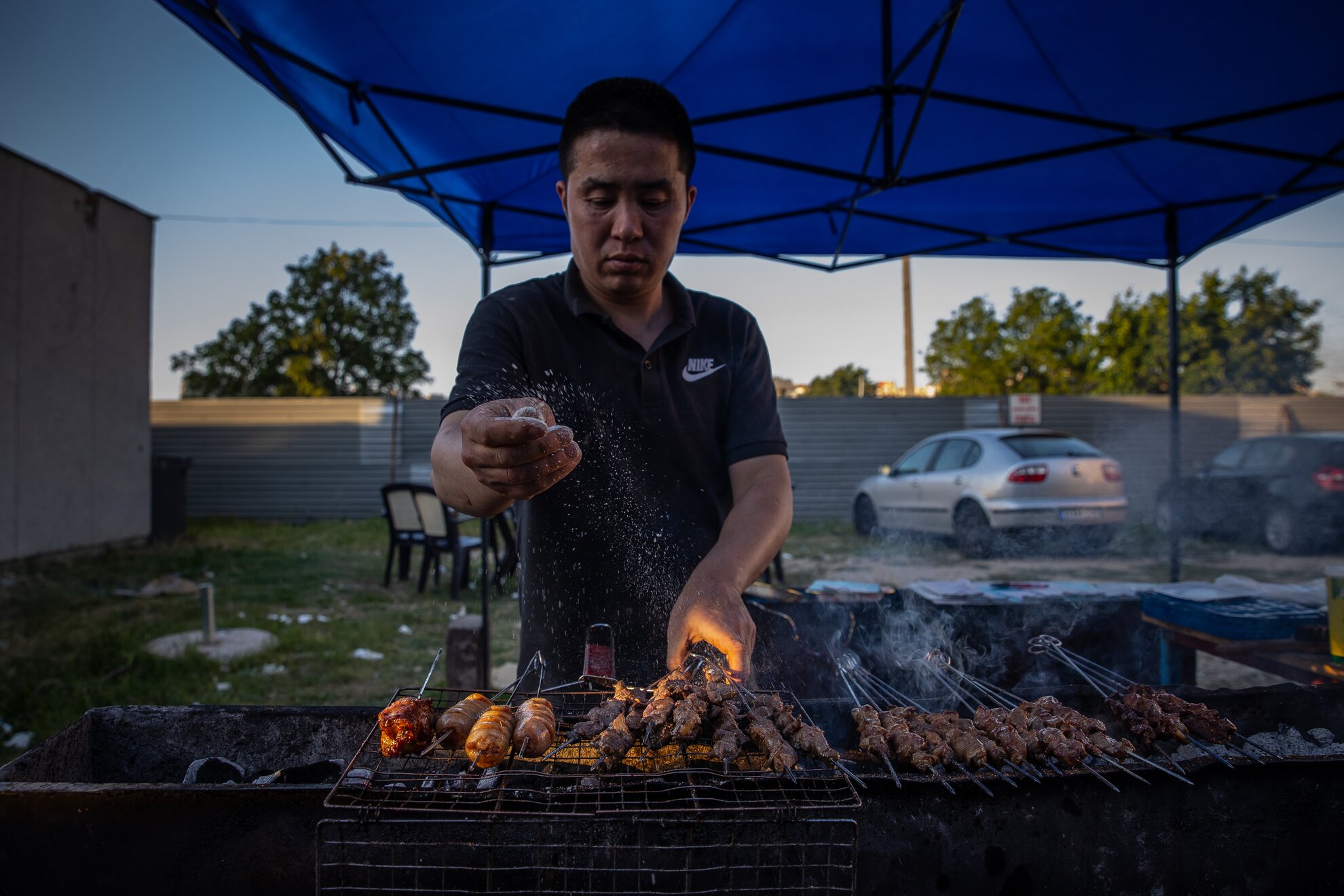
XiaJiuCai
This is the general name for snacks consumed around beer and
conversation in China. These are cold specialities like edamame beans, boiled
peanuts, spicy wood-ear tofu skin, wakame seaweed salad, fermented Asian
seasonal vegetables (such as Chinese asparagus), marinated pigs’ ears, duck's tongue and duck's neck.
Whether the snack is crunchy or refreshing, you can put
together a mixed bowl for beginners, such as at Wan Hao Restaurant 1. Although it’s a hot snack, toothpick beef can be shared at Stand 2. These juicy, spicy, sesame-seeded
mini-snacks are the perfect accompaniment to beer and natter.
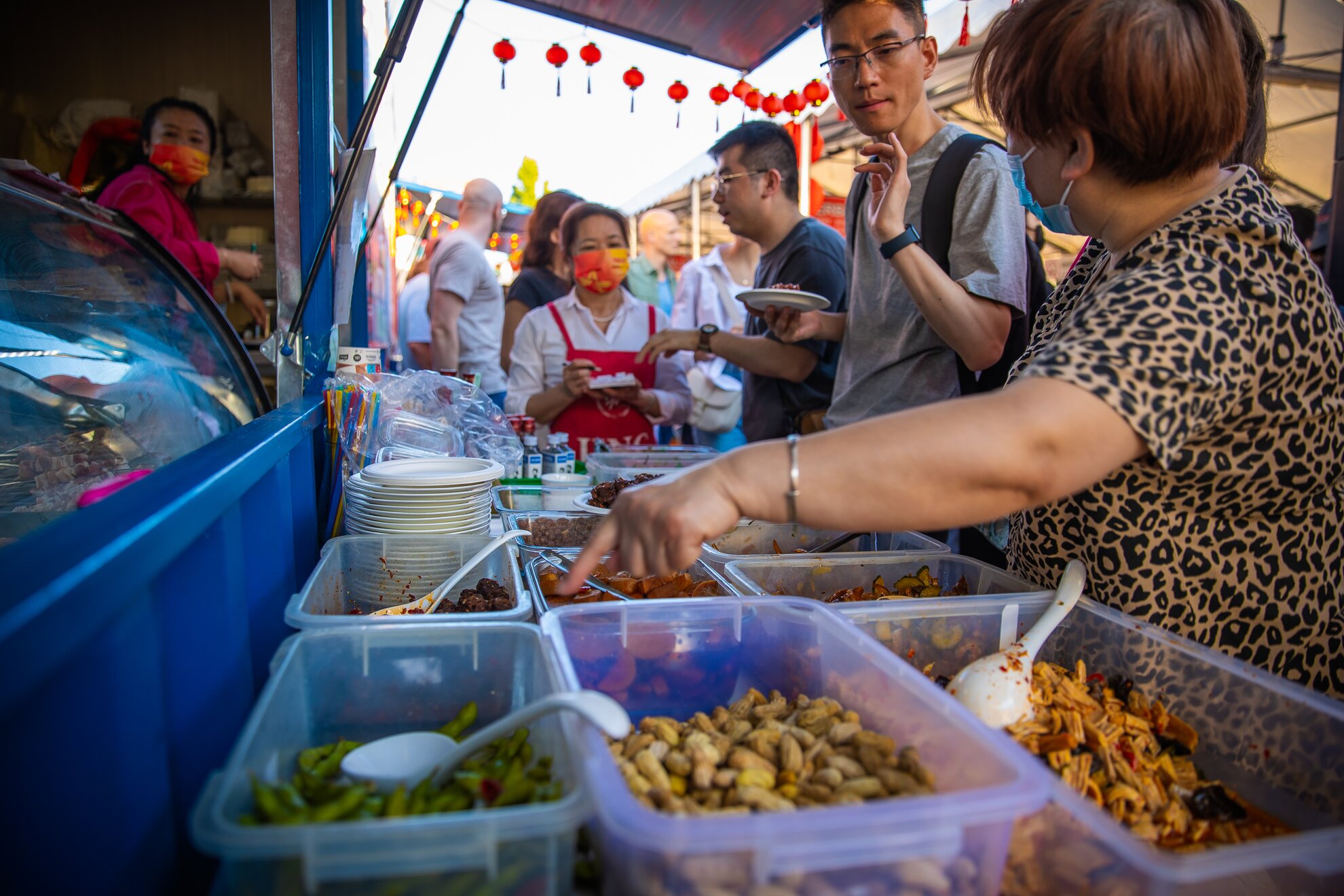
Fried oyster cake
It’s called a dumpling or cake, but this fried dish in hot oil entices curiosity. Here, the ingredients are familiar, just used in a different form. The pasta is made of rice flour and it’s filled with oysters, cabbage, pork and nori seaweed. You can’t really compare it to any other gastro experience and it’s certainly worth a try. You can order it at Stand 9.
Chinese savoury pancakes
Old-school delights include HiBing (at Stand 7) and Happy Panda (Stand 2), where delicious Chinese savoury pancakes are made. This summer at HiBing, you can choose from an even more varied range of doughs and toppings (beetroot, pumpkin and spinach). The classic Chinese way of tenderising meat, velveting, is another favourite pancake filling – with plenty of vegetables and juicy sauces, it’s crunchy from the first bite
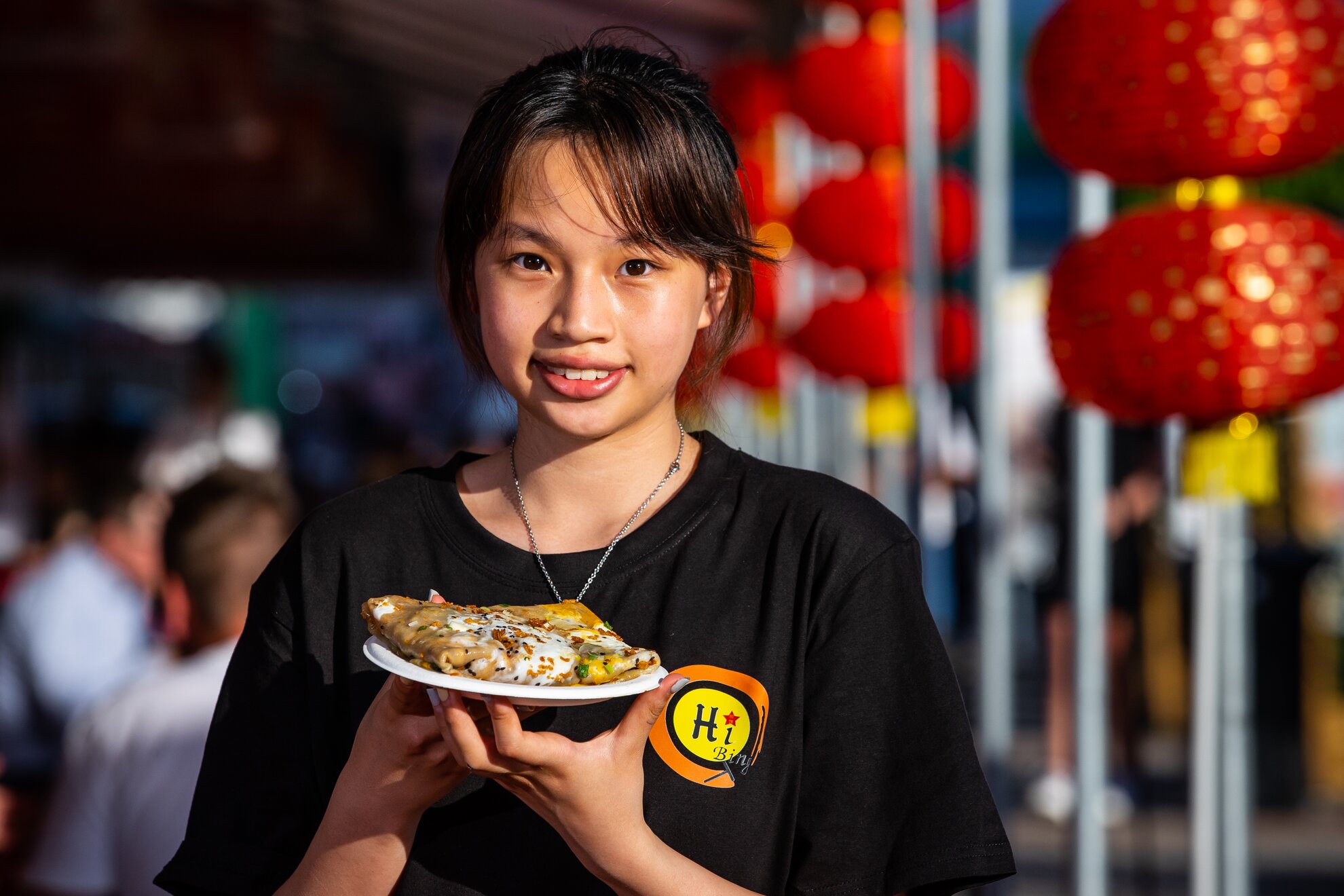
Stinky tofu
Although the name might be confusing, those not familiar with stinky tofu will discover cubes of fermented cheese, popular at Chinese food markets. They say that wherever food is sold on the streets of China, the scent of stinky tofu follows, too. Because the fermented soybean cheese is also fried, it’s creamy on the inside and crispy on the outside. Marinated garlic and chili can go on top, and it’s a real umami bomb. Lifting it up to your mouth, the aroma no longer feels stinky at all and, upon tasting it, you just can’t get enough. Follow your nose to Stand 1.
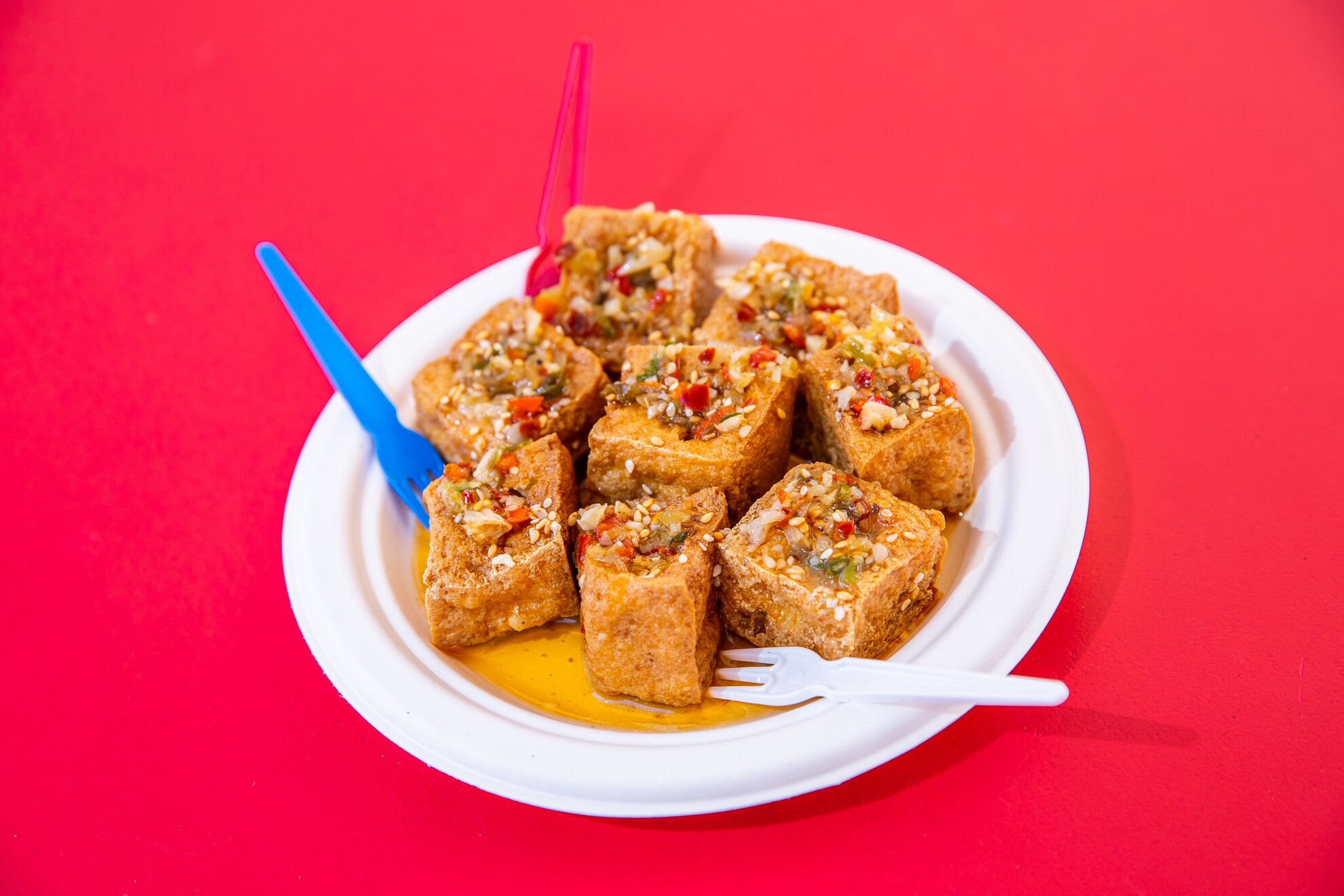
Juicy lamb kebabs
These are spicier than Mediterranean souvlaki and much tastier than shashlik. We loved the lamb kebabs and the version with calamari, too. They are soft and show slight traces of roasting, on top of which you can taste the subtle aroma of charcoal. The calamari are given a coating of a dry-spice mix before frying, providing them with a unique taste once they’re ready. Behind each stand, there are charcoal grills where fish is also prepared. These are ideal dishes for four to six people.
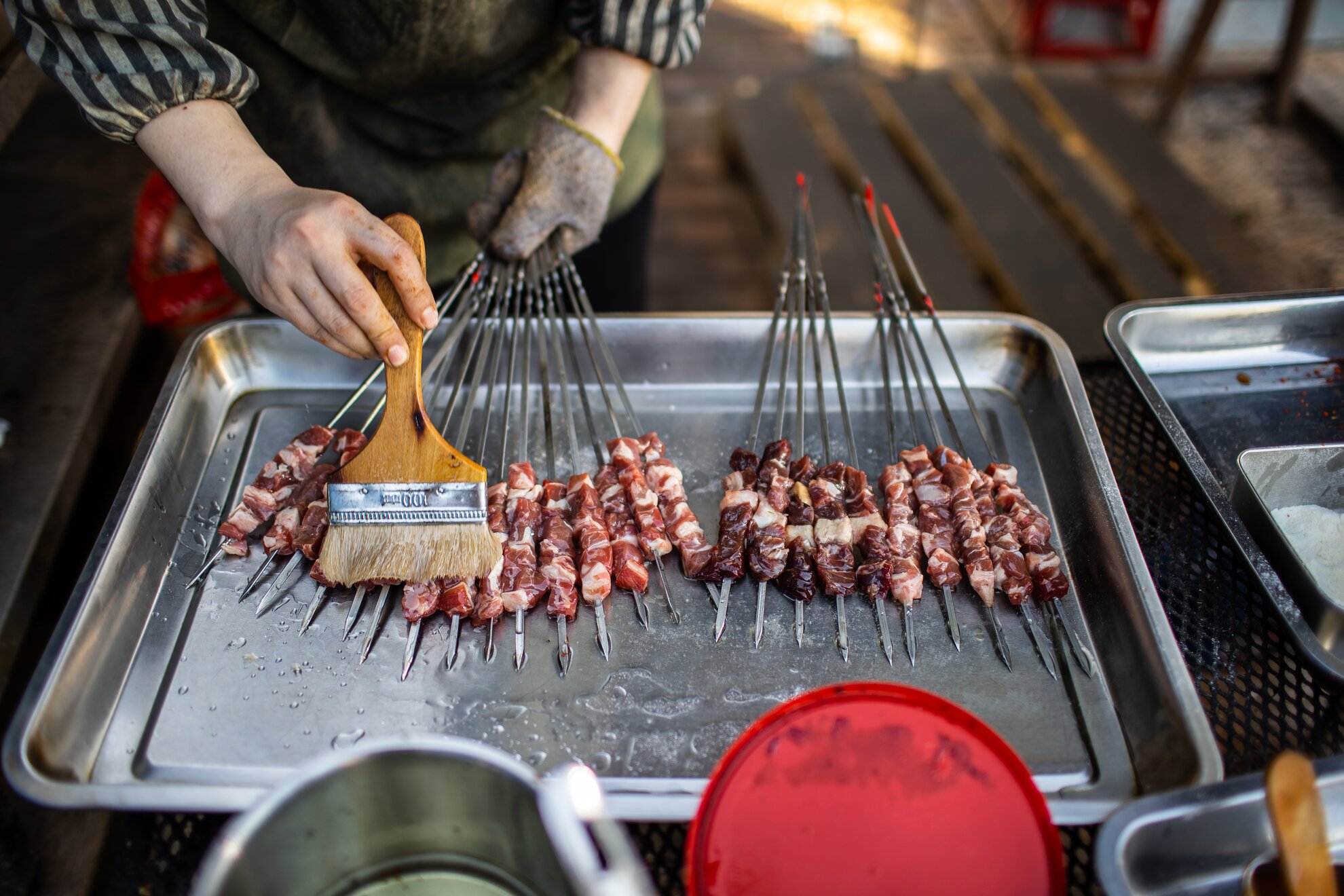
MaLaTang
Smaller than a hotpot, this soup-type dish with all good things on top can be sampled at Stand 3. From lotus root to giant shrimp, it contains everything that is tasty and delicious. It’s a hearty dish, so it’s recommended for two.
Jasmin tea-passion fruit drink
The 515 Bistro at Stand 8 offers the kind of refreshments we didn’t know
existed. Glasses in rainbow colours, the sweet drinks seem as if they could be juice of unicorn horn or mermaid’s tears, poured in a half-pint glass.
Natural teas are
also served here, in nice-looking bottles, but we particularly loved the
jasmine-based, passion fruit-flavoured version, which can easily pass for a dessert.
Also recommended after/during hot spicy meals.
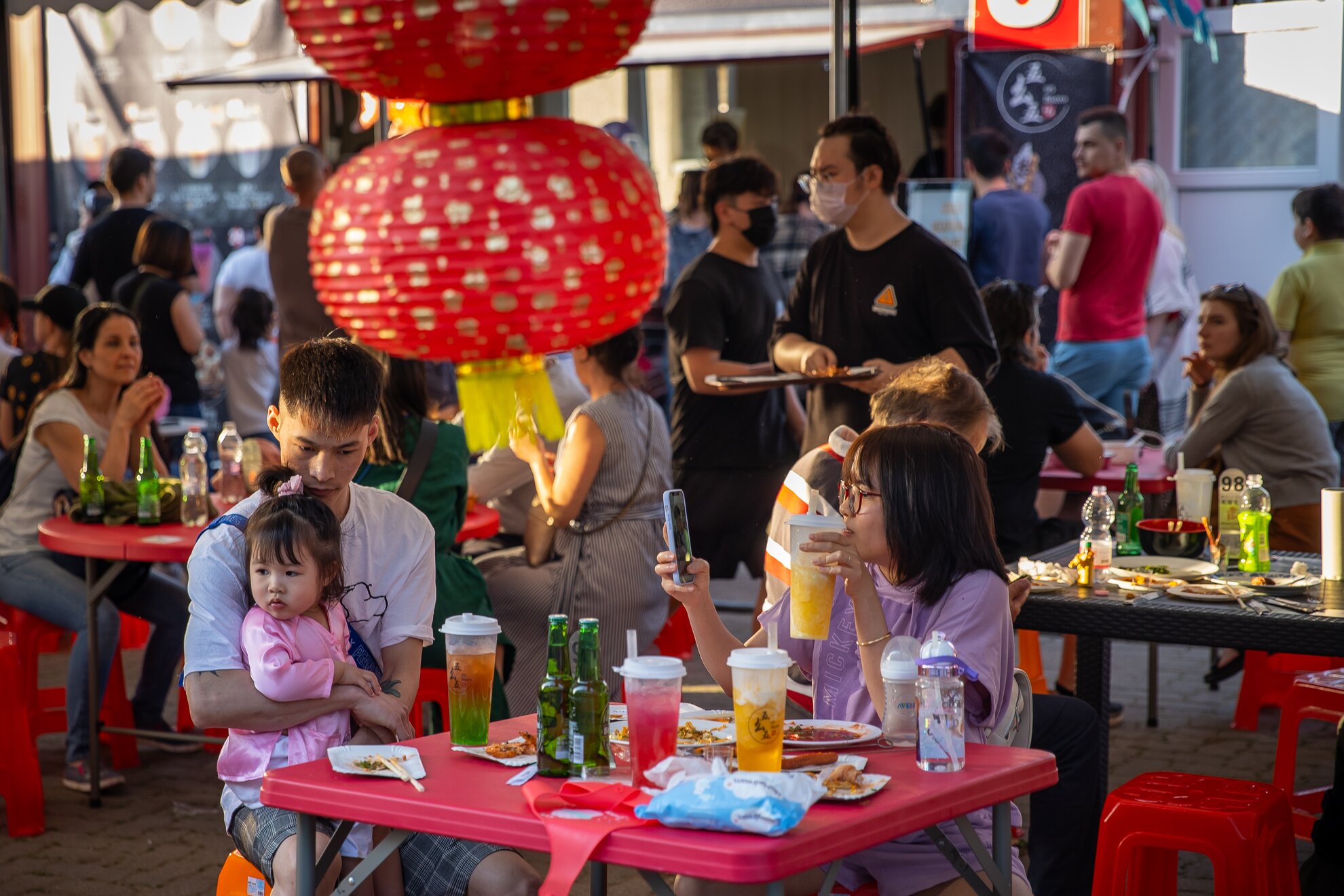
Gong bao chicken
A true Chinese classic made at several places around the market, but we liked the Gong bao at Spicy Fish the best. The original restaurant, with its own rich history, is a few steps from the tent at Stand 6, offering many Chinese favourites which never go out of style. It’s high time everyone tasted real gong bao in its wonderful simplicity, normally fine-tuned to Hungarian tastes. If you’re already here, then don’t miss out on the century egg either.
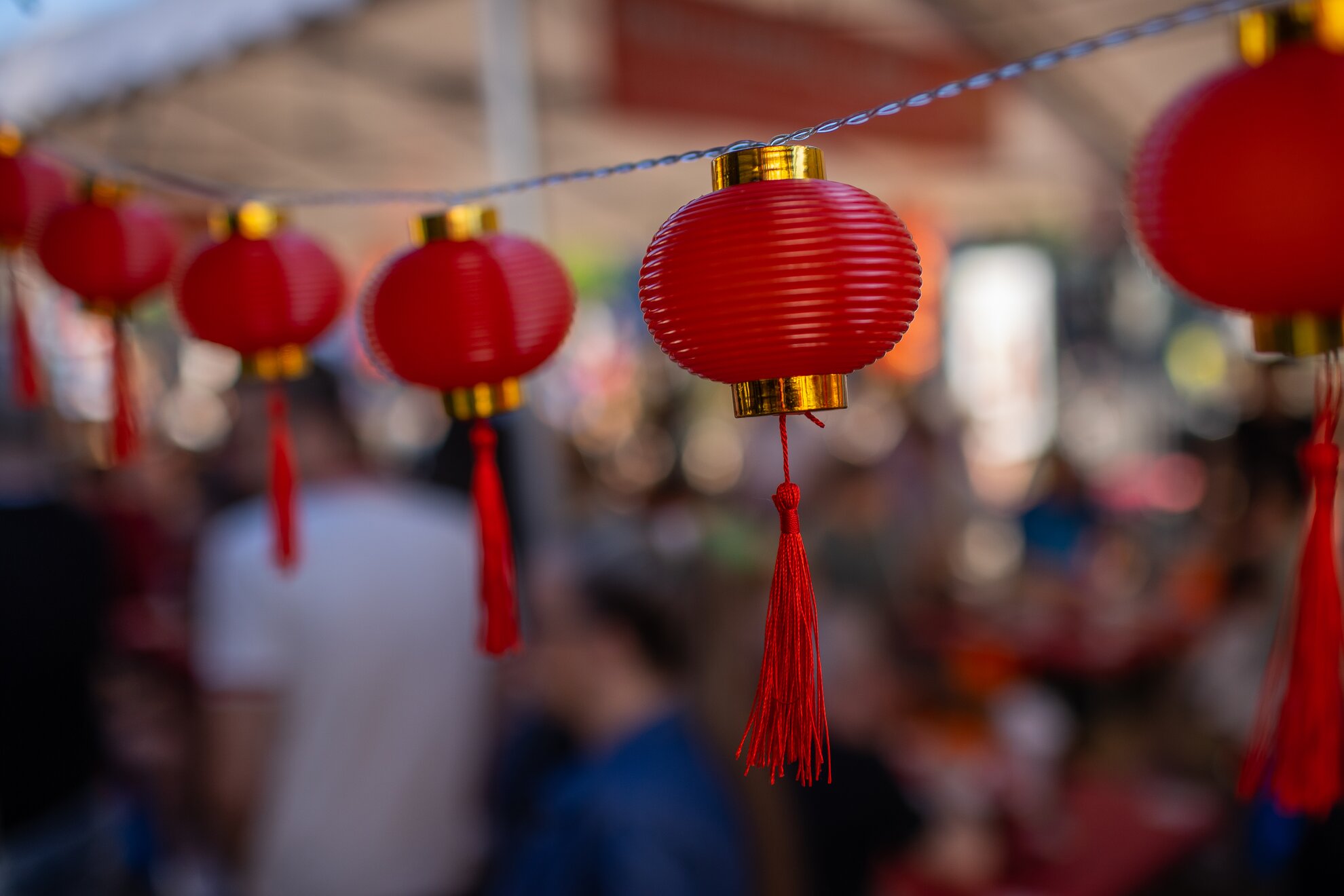
Vegetable kebabs
These can serve as a great garnish, with cabbage perhaps the best example served at Stand 10. The leaves should be picked off by hand, it can also function as a kind of side dish alongside meat and fish. It has a special spicy oil on top, refreshing and crunchy, with a slight touch of charcoal smoke.
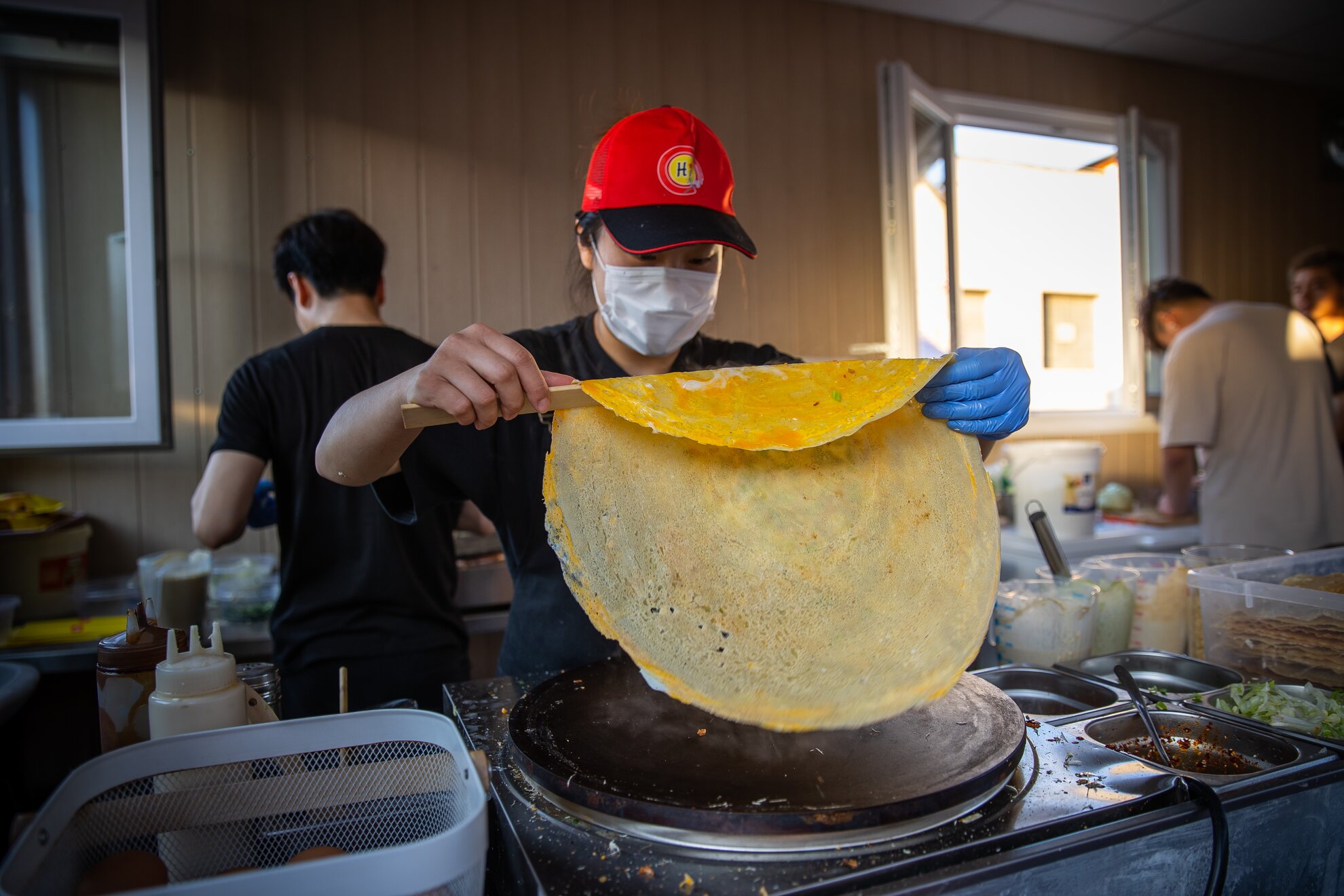
Mochi
They run out of these delicious rice cakes pretty quickly, so hurry if you want to try one. We have already written about Yi-Tian and their divine mochis, which you can also find at Duna Panda. The good news is that you can have the fresh mochi experience with the four-in-one package sold at the market. Our favourite is the mango-and-sweet-bean, but those who are passionate about matcha will also find what they look for at Stand 5. In addition to mochi, they also sell bubble teas and various Asian refreshments in pretty glasses.
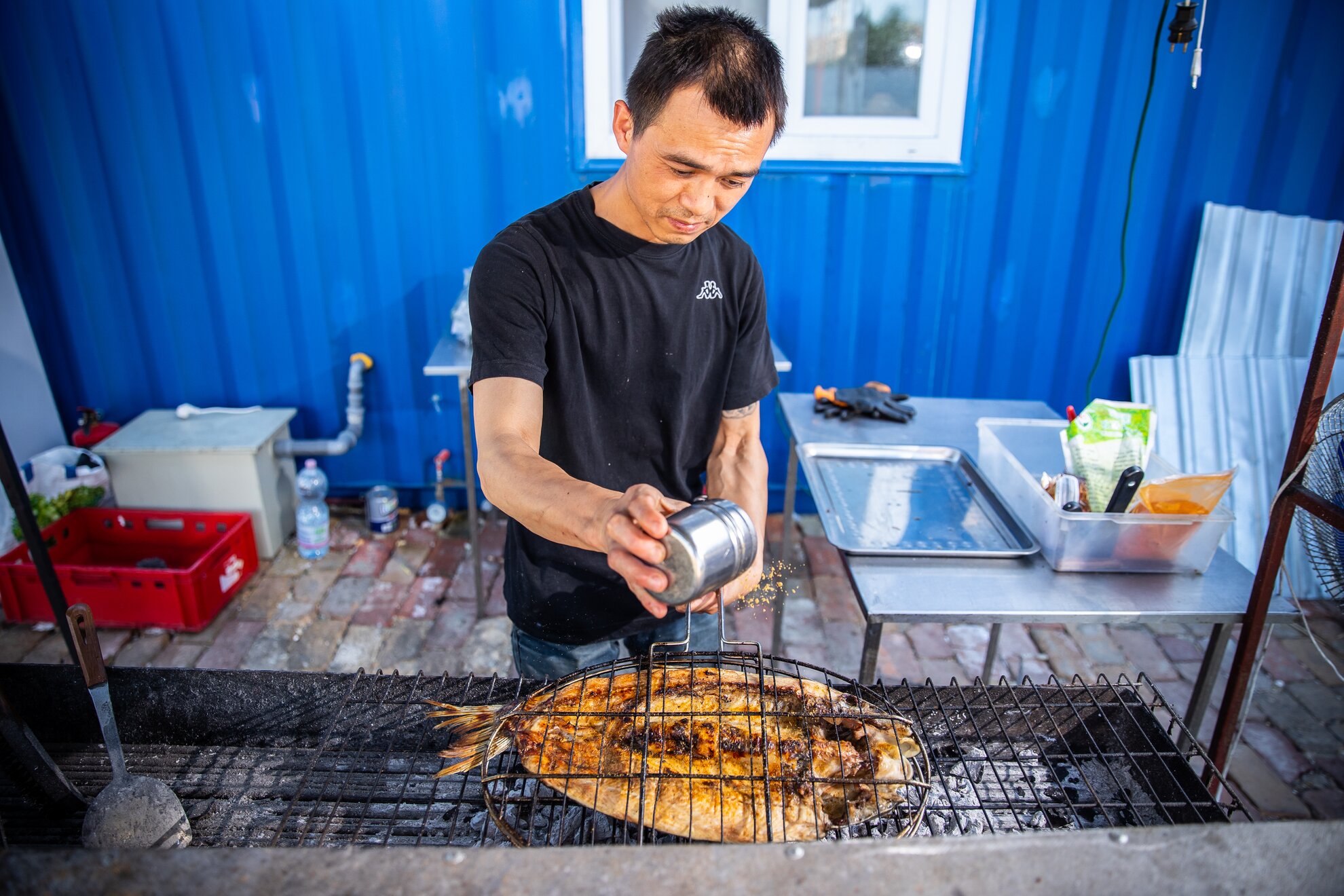
It would be impossible to sample everything at once, even all these ten dishes listed, so take your time, and be prepared to spend a bit more money and expend a little extra energy on your market adventure. You’ll soon get to know the difference between a standard food court and real Asian cuisine.
Venue information
Monori Center
Chinatown Terrace
1107 Budapest, Jegenye utca 30
Open: Summer only. Daily 5pm-11pm from May until the end of August
